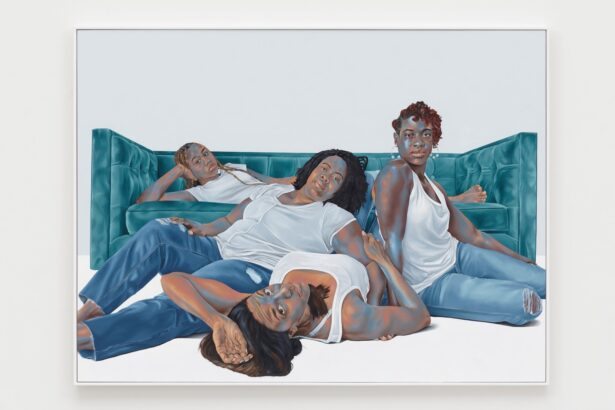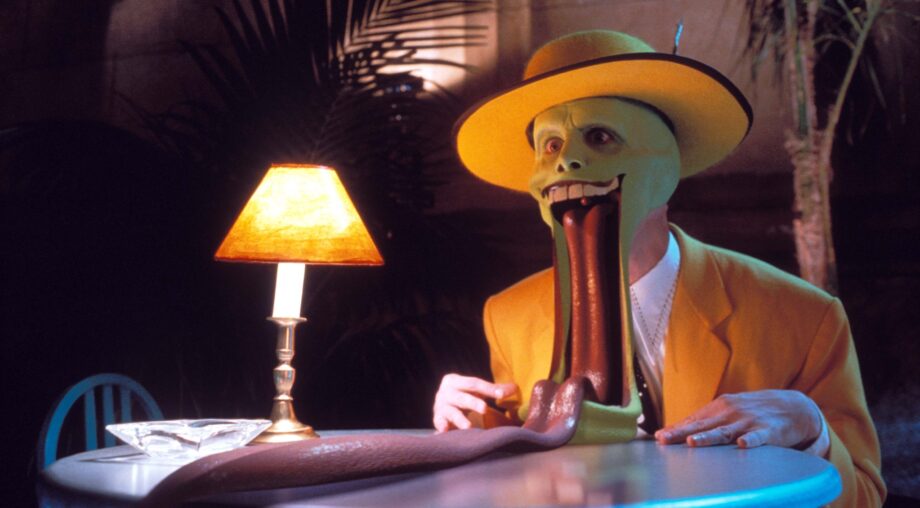In 1994, comedian Jim Carrey (Once Bitten) skyrocketed to fame with three movies beginning with the February release of Ace Ventura: Pet Detective and ending with Dumb and Dumber in December. Between those two comedy classics was another sssssssmokin’ hit — The Mask. It was a big success when it hit theaters on July 29, 1994, bringing in nearly $120 million domestically and $352 million worldwide (on a $23 million budget). And this was at a time when comic book movies weren’t as massive as they are today.
The Mask is loosely based on the little-known comic series of the same name created by Dark Horse Comics founder Mike Richardson. Mark Badger penned the story (stylized as “Masque”) that debuted in 1987’s Dark Horse Presents. The original series was a very different take involving politics, the CIA, and a priest from Central America.
With a story closer to Richardson’s original concept, writer John Arcudi and artist Doug Mahnke rebooted The Mask for 1989’s Mayhem, dressing him in the now iconic zoot suit and introducing the character of Stanley Ipkiss. New Line Cinema bought the rights, planning to make another horror flick in the vein of Freddy Kreuger. But Richardson wasn’t into the idea and the project eventually became a (mostly) family-friendly comedy with very few elements of the ultraviolent, nihilistic source material making it into the film.
After spending years trying to get the project off the ground, production finally began in August 1993. The team was director Chuck Russell (A Nightmare on Elm Street 3: Dream Warriors), screenplay by Mike Werb (Lara Croft: Tomb Raider), plus story by credits from Michael Fallon (The Virgin of Juarez) and Mark Verheiden (Swamp Thing).

Stanley Ipkiss (Jim Carrey) is a hapless bank teller who just can’t catch a break. He’s the “nice guy” who buys concert tickets for a girl only for her to take her friend instead. Even when his best friend and co-worker Charlie Schumaker (Richard Jeni) takes him out for a night at the Coco Bongo, he’s literally tossed into the street by bouncers, landing in a puddle and then soaked in rainwater. This is of course when he runs into his new crush and Coco Bongo performer, Tina Carlyle (an absolutely stunning Cameron Diaz making her film debut).
Continuing his cartoonish streak of unluckiness, Stanley’s junky car falls to pieces as he crosses a bridge on the way home. He almost has a heroic moment when he thinks he sees an unresponsive person in the water and jumps in to save them, only to find that the face he spotted is just a mask. Now soaked in river water, he sulks his way home to be yelled at by his curmudgeonly landlady, Mrs. Peenman (Nancy Fish).
Inside his small apartment, he watches old Tex Avery cartoons and plays with Milo (Max), his Jack Russell terrier (arguably the real hero of the movie). Stanley curiously dons the mask, which latches onto his face (which is honestly unsettling) and sends him spinning around like Taz, transforming him into the titular green-faced trickster.

As the Mask, Stanley is a living Looney Tunes character decked out in garish outfits, operating on cartoon physics that allows him to do reality-bending things with his body and access to an endless arsenal of props and weapons he can pull out of thin air. Along with Carrey’s natural physicality, Industrial Light & Magic’s Oscar-nominated visual effects allow him to bounce around a room like a pinball, flatten himself into a pancake, swallow sticks of dynamite, and famously turn into a whistling wolf watching Tina perform.
Though the magical artifact has had differing, vague origins in the comics, the movie has psychiatrist Dr. Arthur Neuman (Ben Stein, a ‘90s movie staple) telling Stanley that it could be connected to Loki, the shapeshifting Norse God of Mischief.

None of the characters are particularly alarmed that this magic man has a green head and random props and can zip around at an inhuman speed. Lieutenant Mitch Kellaway (Peter Riegert) hates the menace but even he doesn’t really question the absurdity, aside from insulting Stanley’s choice of pajamas.
Production designer Craig Stearns (Mighty Morphin Power Rangers) made Edge City a grungy, timeless, Gotham City-esque world populated by mohawk-ed street gangs lurking in alleys and crime lords planning to overthrow each other. There’s even a charity ball in the film’s climax, an event we all know is prone to be interrupted by a monologuing villain hamming it up with their gun-toting henchman.

The Mask is the only Edge City denizen with freakish powers until the mask temporarily falls into the hands of local gangster Dorian Tyrell (Peter Greene), who turns into a Hulked-out Goosebumps monster with red eyes and a demonic voice. Dorian’s revenge-fueled master plan against his superior Niko (Orestes Matacena) is to just blow up the Coco Bongo with a Wile E. Coyote bomb.
In the comics, Stanley essentially lives out his revenge fantasy. He’s a self-pitying man on a misanthropic murder spree, violently taking out people who’ve wronged him in some way (sadly, a terrifying reality in the years since). In the movie, he still goes after various bullies like the mechanics who conned him, an off-screen scuffle that leaves one of them in need of “the best proctologist in town” — still dark but nowhere near as gory as the source material. He also encounters a comical gang of criminals trying to rob him and distracts them with balloon animals before fashioning a Tommy gun out of a balloon and shooting at them. Again, there’s a much more graphic version in the comics.

The movie shows another side of him as a hopeless romantic. Between crimes, he’s walking into a nightclub, changing the music, commanding the stage, and effortlessly showing off sick dance moves with a beautiful woman. With a comedic talent like Jim Carrey, slapstick rom-com was obviously the way to go.
The Mask is an unusual mashup of romantic comedy, 1940s noir, and zany comic book elements, making it a timeless classic. It was a huge gamble for the early ’90s that more than paid off, launching the career of Cameron Diaz and cementing Jim Carrey as one of the best comedic actors in the business.
The Mask is streaming on Roku Channel and is available to rent on Prime Video.




